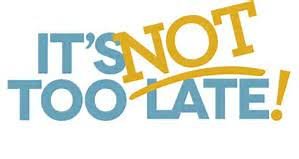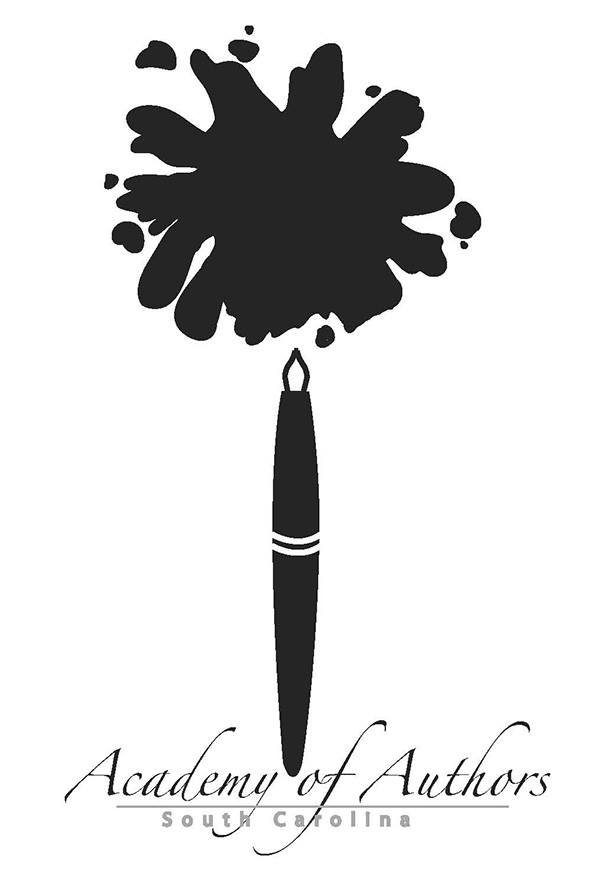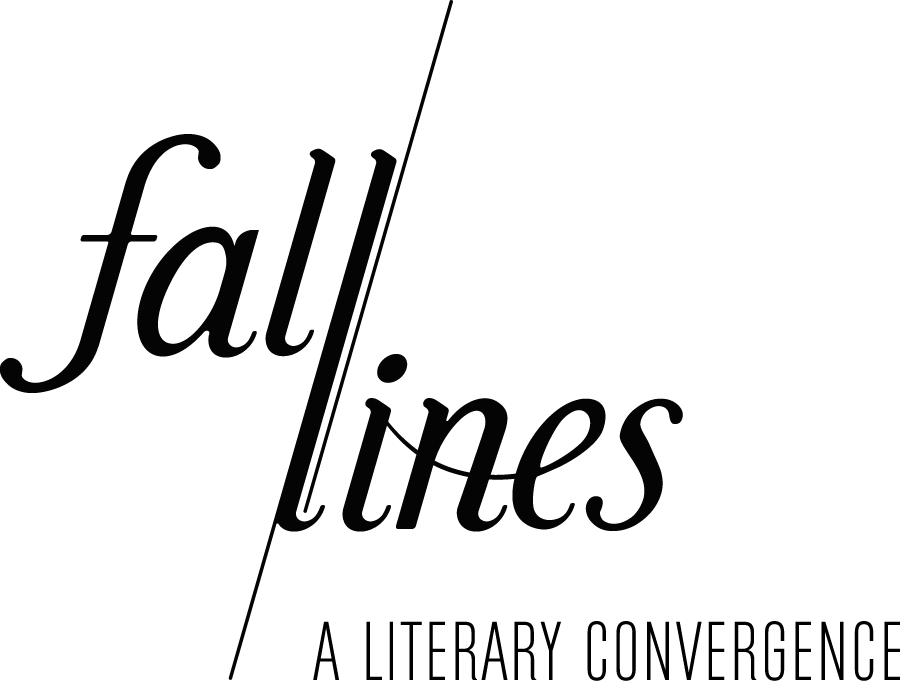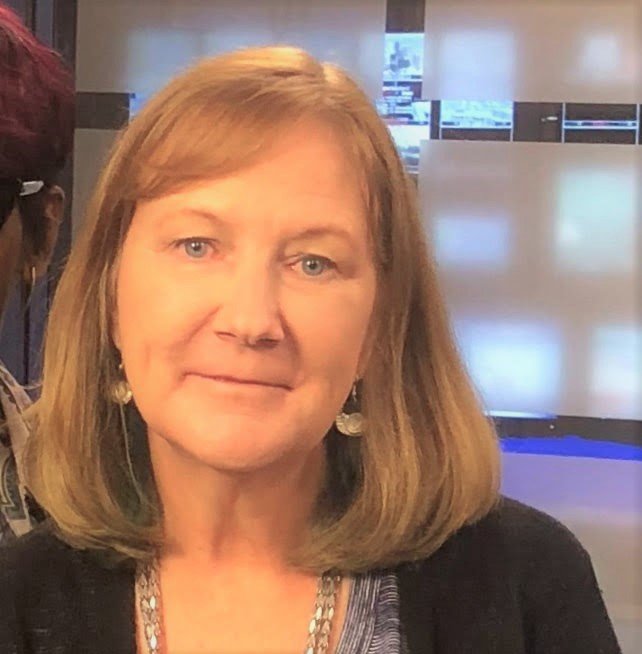Earlier this summer, Jasper announced the accepted contributors to this year’s Fall Lines - a literary convergence, now in its 7th year, but opted to hold the release of the book until our community of writers can safely gather together for a reading and celebration. But we won’t make you wait any longer to read the winning entries of the Saluda River Prize for Poetry and the Broad River Prize for Prose.
In this edition of Jasper’s Corona Times Blog Series, please meet Randy Spencer, winner of the Broad River Prize for Prose. You can learn a bit about Spencer, and check out both his winning short fiction as well as a new pandemic-related poem debuting on the Jasper Project website below.
Days by Days
H.R. Spencer
8.5.20
Flying is easy. It's hovering that's hard.
Watch the hummingbird
how effortlessly he flies
from plant to plant
and how much more difficult
to remain stationary in the air
wings beating three thousand
times a minute
or the osprey circling
and struggling to balance himself
keep an eye on his target
until in a blink
he plunges into the water
as if he were a sharp stone
pulled down only by gravity.
We are hovering now
this last half year or so
marshalling all our energies
only to stand in place
unable to flit gracefully plant to plant
or dive forward like the osprey
unable even
to make the days count
caught in this miasma
this ancient warp of "bad air"
this terminal inertia
our frantic wingbeats
our desperation
our grim paralytic fear.
Today's agenda:
open my eyes, think hard
is this Wednesday or Thursday
or maybe did I skip Tuesday altogether
have I slipped unannounced
from July into August without noticing
or have I inadvertently
announced that August is about arrive
our days by days gather us in
relieved only by a late-day shower.
~~~
Thank you, Randy, for agreeing to share your work and a bit about yourself with Jasper. You have a fascinating background so let’s start with that.
JASPER: For folks who haven’t had the pleasure of meeting you yet, I can share that you are a retired physician, right? But can you please elaborate on this – how long did you practice and what was your specialty? And, while we’re at it, where are you from – did you grow up in SC or did something bring you here?
SPENCER: I was born and grew up along the James River in Virginia and went to college 20 miles from home at William and Mary. I came to South Carolina in 1972 to do a 2-year fellowship in Child Psychiatry and have remained here since that time. I retired several years ago, but for 45 years I practiced primarily in a number of Community Mental Health Centers here, but also as a consultant for the Department of Social Services and, back in the eighties, for the juvenile justice agency. I also helped develop the S.C. Continuum of Care for Emotionally Disturbed Children.
JASPER: And now you live on Lake Murray, right? How long have you been there?
SPENCER: We've been living on a quiet cove on Lake Murray since 1986.
JASPER: When did writing become a part of your life?
SPENCER: This question is easy. When I was a junior and senior in high school I was one of the editors of the school magazine and things took off from there, and I studied playwriting and short story writing in college. In medical school, maybe for obvious reasons, creative writing took a back seat. I went back to college at U.S.C., at first just a few classes under James Dickey and later to enter the M.F.A. program in Poetry.
JASPER: Who have been your influences as a writer?
SPENCER: People always ask whose work influenced you the most, and the truth is that influences from other poets constantly changed over different periods in my life. I can look back now at who I was most influenced early, Robert Lowell, and wonder "why." But Theodore Roethke has been an early favorite who has stuck with me. Early on, I studied with Jim Dickey, a remarkable class out of which came a number of remarkable published poets and which really stimulated me to write. Right now, today, my favorite poet is David St. John. If you read a lot of my poems, most of which are unpublished, you'll see a number of poems in tribute to or elegies for poets or visual artists I felt a kinship toward.
JASPER: We know your work has appeared in several Jasper and Muddy Ford Press publications A Sense of the Midlands and Limelight (MFP) as well as in a number of additional anthologies such as The Art of Medicine as Metaphor and the South Carolina Collection and journals, Borderlands and Yemassee. Can you tell us about The Failure of Magic and What the Body Knows?
SPENCER: Like many poets starting out (and later, too) I would go to workshops to study under already successful writers and The Failure of Magic came out of a writers conference at Winthrop and they published it. What the Body Knows was published out of the Poetry Initiative at the University of South Carolina. Both were smaller chapbooks. Revised versions of a few of the poems in the second chapbook are in my full-length The Color After Green. Getting to discuss that book on SCETV's By the River has been the highlight of the year.
JASPER: In 2019, Jasper had the honor of writing about your publication, The Color After Green in our magazine. How long did you work on this piece of writing and what was the origin of these poems?
Spencer: The Color After Green was a themed book and all of the poems were contemporary nature poems, or what is called "ecopoetry," or poems about the environment in some fashion or another. To put together an entire volume of poems with a similar focus meant using some older poems written as long as twenty years ago along with some which were very recent at the time the manuscript was submitted, plus all the time in between. There are a lot of poems with coastal settings, sometimes in Virginia where I grew up and others in South Carolina, where I've lived since 1972. There's a poem about Hurricane Hugo, for example, which was first written probably 10 years after the storm. There are other poems reflecting the frightening changes in our environment as related to various species, from barnacles to monarch butterflies to horseshoe crabs and birds.
JASPER: You’ve also created the stage work, Becoming Robert Frost. Can we hear more about this piece?
SPENCER: It started as just a few short poems, then grew into a three-act verse drama, and now has been submitted as a hybrid verse-prose novel. It meant a lot to see several staged reading of the work as a play, and I got to read almost half of it at Piccolo Spoleto paired with another to read the dialogue. It has been worked and reworked over years and I like the way it reads now, but I've also broken various characters out as short stories, so we'll see where it goes. The play/ poetry/ novel/ short story is the imagined last day in Robert Frost's life in the hospital in Boston and the fictional conversations he carries on in dreams with deceased family members and the two characters from his poem, "Home Burial." I studied playwriting again at U.S.C. and playwriting has had a tremendous influence on the germination of my poetry. Writing for the stage forces you to write in the multiple voices of different characters, and in my book I write poems in the voices of Thomas Jefferson, John James Audubon, Georgia O'keeffe, and in one poem, a fable, have animals conversing with one another. You so often hear about "finding your own voice" as a poet, but it has always seemed more challenging and "fun" to me to deliberately steer in the other direction.
JASPER: Congratulations on winning the Broad River Prize for Prose in this year’s Fall Lines literary journal. Given that we’re sitting on the release of the journal until we can gather all the writers to celebrate together, we’re stepping out of the box and publishing your winning story, Ghost Ship, below. Set that story up for us, please. Where did it come from and what meaning does it carry for you?
SPENCER: "Ghost Ship" is part of a continuing project to bring to life a fictional group of characters living on an unnamed island in the Chesapeake Bay, not too different, I suppose, from Tangier or Smith Islands. These few remaining inhabited islands are threatened with annihilation both simply from chronic erosion, but also by sudden, catastrophic storms. A story from that same cast of characters was in Fall Lines 2019. I grew up close to the Chesapeake Bay and have visited Tangier Island. I would stress, though, that the characters are totally fictional. Winning the Broad River Prize is a great honor.
JASPER: We also opened this post up with a new poem from you, highly pertinent to where so many of us find ourselves today. Can you talk a bit about the origins of this piece, too, please?
SPENCER: "Days by Days," I hope, would resonate with all our frustrations with the tedium of isolation and lack of social contact, trying to stay healthy and keep others healthy. It certainly reflects my own feelings toward a life that seems to simply hover in one place and yet use up or waste tremendous energy. At the end of the day you feel physically and emotionally exhausted, but haven't done anything.
JASPER: So, as a physician and an author, what’s your advice for the rest of us on how we can get through this pandemic and the political turmoil that we find ourselves in?
SPENCER: I would say "Do as I say and not as I do," that is, don't watch the news obsessively. Instead immerse yourself in a hobby or something creative. Read, although I know if I said to "read poetry," that would truly fall mostly on deaf ears. I'd say, "Don't follow all the conspiracy theorists to convince you of the real truth." and "Take the vaccine when it's available. No one in going to inject you with alien proteins that take over your brain." We can get through this, however painfully.
~~~
GHOST SHIP
Randy Spencer
"It was a dark and stormy night. A pissy dark and stormy night."
Sarah didn't like it when I said that--making jokes at a time like that. But she's young. Hess understood. Sometimes you make bad jokes to hide when you're scared. Hess and I grew up together--had been through it before. A hurricane riding up the Bay and flooding the island like this. Anna didn't grow up here, but she got the joke--the need to laugh when things seem the most desperate.
But it's funny how the mind works times like that--
What I was thinking about--at that time--back in the church--the four of us huddled together, feet soaked, water sloshing over the cushions in the pews, rising almost up to the pulpit--the wind tearin' at church windows--shutters slamming and still four hours until the peak tide. Not knowing anything--feeling helpless. Totally helpless.
And, God, through it all I couldn't stop thinking about how it was when we were children, at least when Hess and I were. And thinking of Ollie and Ted, and Roland, too.
And we were there earlier last night, and only a few hours later, wading--swimming--out of the church, and climbin' up onto Roland's empty old break-away boat, a Godsend, a miracle floating up out of nowhere--a ghost ship--then huddled aboard her when it seemed like the church would have collapsed around us. The last chance we had.
Hess said she thought this one was worse than the others. I was thinking, too, all things considered, this might be a pretty shitty rescue vehicle. Terrified--that piece of rust might tear loose again, float off--sink--capsize--and you knew we were fuckin' screwed any whichaway.
And so I just sat there telling the others how forty years ago--Christ--our childhood I'm telling them about, and they could care less--we could have all been drowned by morning. I can say that now. It was Anna's idea that we keep talking. Tell stories, anything--it was a low bar--just try to stay awake.
We were in so much shit--but I only wanted to talk about re-living being a child..
You know what I kept remembering--this vivid image coming to me back in the church. Us being invited into Roland's bedroom one night--in this total darkness--where he kept that big aquarium. I asked Hess if she remembered?
She did. "I remember--full of creatures he brought home."
And that night he swished his hand into the water and the whole room lit up when he brushed against comb jellies he had collected. Tonight when I looked down in the aisle at the church--in the total darkness--and I ran my hand under the water and jellies would light up-- LIGHT UP--fuckin' light up in the total darkness in the sanctuary, and I panicked--I don't think the others realized it. I didn't scream out loud, but I panicked just the same--like I was trapped in this giant aquarium.
Then Ollie's drownin' came back over me. I panicked inside--inside, my breath cut off, my heart racin,' where I felt darkest--and I could feel Ollie grabbin' at my ankles under the water --I could look down and see his face all crowned over with seagrass--his hands reaching out from it --tryin' to pull me under. I never felt anything like that since he died--and I'm thinkin'--he's here--he's right here--in this water--this is where he drowned--
I knew he wasn't there--far from it--but I couldn't stop thinking he was.
That's why I tried to think about how it was when we were children, the three of us--Hess and me and Roland, had such good times--how kind the water seemed then--before all the shit that came after--and tonight just topped it all off--and I think about it,
So I just told these happy stories, and blocked everything else out.
But it was Anna trying to figure out how we could survive. She left us, wading--half-swimming--in water up past her waist and headed toward the front door.
When she pulled it open, the water surged in and she yelled at us there was a large boat of some sort out there. All dark, but big as life. And when lightning struck again, she hollered it was Roland's old abandoned supply boat, all forty foot of her. It was so dark and she couldn't see anybody onboard. It seemed to be stuck on the bottom, shaking, but not really rocking up and down in the waves. And the waves are coming pretty hard, pinching through the church door and knocking her off her feet.
You don't know prayer honestly--real, heartfelt prayer--until you're in a spot like that, and the wind is howling around the church and through the open door and we're breathing nothing but salt spray, and Anna screamed at us to work our way along the wall to stay out of the swells and come toward her.
Anna keeping us in her direction, her voice yelling louder than the wind and I hear her say the boat is only about fifteen feet away, and between us and the worst of the storm and there's debris piled up where we can maybe crawl on top of it, climb on the platform at the stern. She's calm like there's nothing to it and we just need to trust what she's telling us. The water wasn't cold. Not warm exactly, but warm enough. I'm having to grab the end of each pew and inch myself along. And halfway along the wall I touch the bronze plaque. The one that honors all the crabbers lost in storms and accidents, and I stop for a moment and run my fingers across the raised letters and the last name is Ollie's and I start to cry, didn't want to leave. Then I hear Anna speaking, closer now.
You could see the lines hanging limply from the starboard side, like she had been tied up and torn free afterwards by the wind. We climbed on, bunched there, the four of us--all women-- inside on the main cabin. It was still dry and the large boat--steel-hulled--a former ocean-going tug refitted to carry passengers and ferry supplies. It was stuck on what should have been the West Ridge, opposite the church and seemed to be impervious to the storm.
The wind whistled around the pilot house. Made a banshee-like sound like nothing I had ever heard. We were soaked and hungry, but just crouched there listening to the storm, knowing in our hearts the wind was going to split her top open and the rain to pour inside. But everything held together and we just waited. Hess had a watch, said it was 1:30 and we had at least three and a half hours before we could see outside. Sarah made her peace with God and was asleep off and on. I tried not to, but I think I dozed off from exhaustion, five, ten minutes at the most. I never saw Hess close her eyes. Like she was our nurse, on duty to the end.
The water was still rising. If we had stayed in the church we would not have any way out. We would have all drowned.
There were loud, creaking, hollow sounds that were are terrifying. Then a lurch. Then we pitched wildly and heeled over toward one side. Then broke free. You could actually hear timbers underneath us cracking and releasing us, the whole sequence over in less than a minute. We thought for a moment the boat might tip over. I knew the Margaret Ann to draw about six feet of water, and we were floating again. She seemed to regain her balance, rocking back and forth like an unsteady drunk, but not falling too far. And we were moving. The winds, the high-running surf breaking over the island, carried us away from the island, a rudderless meandering, a sickening motion that could end up to no good. We were crying, momentary relief and fear bound into one emotion..
That night on the boat I didn't really sleep. Crumpled there, almost getting too drowsy where I couldn't control it, but never giving in. We talked a lot. When there was a lull we told stories.
I talked about soft crabbing, just Roland and I. I was probably eight or nine and he was two years younger. We would push a dip net through the eelgrass, dropping soft crabs into the floating crab box he had hammered together. Those were times when the island was easily a hundred, maybe two hundred yards wider all the way around than it is now. There were shallow shoals outside the spartina where the eelgrass was so thick you had to struggle your way through it. I can step out my back door now and walk fifty yards and on a king tide be up to my knees in water.
Back then we used to sell the soft crabs to the wives of hard potters, and they loved getting them like that, still fresh and kicking. "I still remember your mother, Hess," I told her, "You don't know this. I was ten, and I had never cleaned one of those crabs and she told me she was too busy and she wanted me to clean them for her and she would pay me extra, so I did what I had seen my own mother do when they had been in the cooler, only these crabs were alert and feisty and when I took the kitchen shears and tried to cut their faces off they raised a ruckus and I can still remember that sick feeling in the pit of my stomach, and I never sold, offered to sell, your mother another crab. That's the truth."
Then there would be a sudden jolt and we'd all pitch forward and sprawl out on the deck and stop, then suddenly started moving again. Then we struck hard against the bottom. Stopped for a bit, then the whole thing all over. No one knew what was going to happen. Whether the hull would rip open. Whether we'd sink or even capsize if we really got blown out over deep water. It was 3:30 in the morning when we really seemed to break free. Pitch dark. And the real fear, the dread, even hopelessness took over. We were drifting west, but none of us knew how far it would be to the other side.
When it started to get brighter out I stood up. The wind had stopped. The water was calm. We thought we had blown to the west side of the Bay, but had hardly drifted anywhere. Maybe a few hundred yards from where we started.
I could look east when the sun broke between clouds and I could really know why we had to leave the church. It had caved in. You could see a section of wall with one stained glass window light up in the early sun. Everything was gone. I could see it was gone, the whole island just wiped away. A few slight smears of sand creasing the surface, water lapping at jumbles of marsh grass. Houses simply gone. Debris everywhere, as far as I could see. Boats sunk. Crab shanties marked by a few stark poles supporting a broken cross joist or two. A few nets draped over the surface.
When I glanced over the side, a crab, a large jimmie, swam next to us--that peculiar sideways crab swim, the one where you think it can't look ahead, can't see where it's going.
~~~
by Cindi Boiter
Cindi Boiter is the editor of Jasper Magazine and ED of the The Jasper Project.
To support the work of Jasper, including articles like the one above,
please consider becoming a member of the Jasper Guild at www.JasperProject.org


















